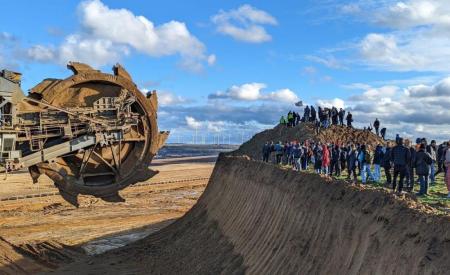By Simon Pirani
Russia’s monthly revenues from oil exports rose by $1.7 billion to $15 billion in April, the International Energy Agency reported this week.
The combination of shipments to China and India, which are taking about 80% of Russian oil, and of sanctions-avoiding tricks by European and other shipping companies, means that the western powers’ price cap on Russian oil is causing few problems.
The IEA’s monthly Oil Market Report showed that in March, Russian oil exports were at 8.1 million barrels per day (bpd), their highest level since April 2020. In April they went up even further, to 8.3 million bpd.

What is going on, 15 months after Russia’s murderous full-scale invasion of Ukraine?
In this article – based on a talk I gave at the Berlin School of Economics and Law last week – I look at (i) the background, (ii) oil and sanctions, (iii) gas and the Kremlin’s self-sanctioning, and (iv) what this all means in terms of cutting fossil fuel use and climate policy.
–
1. Background
The character of the war
To understand the economic aspects of this biggest military conflict in Europe since the second world war, we need to understand its political character.
The primary target of the Russian military operation is Ukraine’s civilian population – and, to underline this, it’s worth summarising the main points from the Organisation for Security and Cooperation in Europe’s Office for Democratic Institutions and Human Rights interim report (December 2022).
The actions by the Russian Federation that “may amount to war crimes and crimes against humanity” included:
□ “Repeated and apparently indiscriminate strikes in densely populated areas using explosive weapons with wide area effects, resulting in widespread civilian death and injury”;
□ “Devastating and intensified attacks reportedly carried out against civilian infrastructure, […] resulting in high numbers of civilian casualties and loss of access to critical infrastructure for millions”.
Read the rest of this entry »


 Posted by peoplenature123
Posted by peoplenature123 


